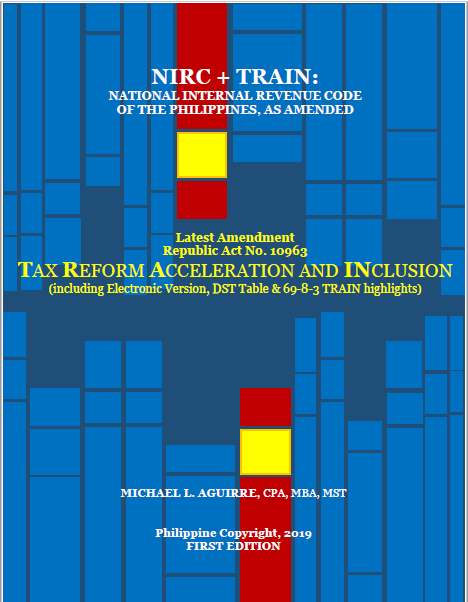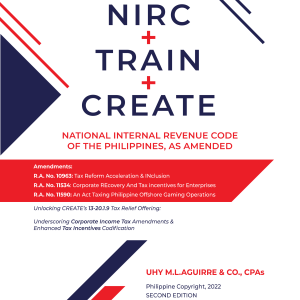Description
This material presents an informative reference guide to the National Internal Revenue Code of the Philippines (Tax Code of 1997) and the recent Tax Reform Acceleration and Inclusion (TRAIN) Law of the Philippine Government. Readers will easily navigate their way through the updated/ amended provisions of the taxation laws, rules and regulations in the Philippines. Moreover, the author shares his personal views on reforms brought about by the TRAIN law which hinge primarily on how to:
- Unbundle 69-8-3 key provisions of the TRAIN law that include the enhanced personal income tax table intended to provide equitable relief to individual taxpayers;
- Differentiate among the Eight Percent (8%) Income Tax Rate (EITR), Graduated Income Tax Rate (GITR), and the Optional Standard Deduction (OSD) regimes;
- Utilize Mixed Income Earner’s (MIE) rule that is applicable particularly to working class with sources of income other than annual compensation of P3.0M and below;
- Apply the Estate and Donor’s Taxes under a six percent (6%) flat rate after considering the upgraded tax-exempt threshold;
- Conform with the calibrated documentary stamp tax rates (summarized in matrix format), VAT threshold/exemptions and compliance requirements, passive income, and excise tax rates on various products and services (including sweetened beverages & non-essential services);
- Comply with the streamlined Administrative Reforms aimed to pro-actively cover digital or electronic transactions under the tax radar, deter tax malpractices, and improve the ‘ease of doing business’ in the Country; and
- Relate the TRAIN provisions in the real world bearing in mind the recent revenue issuances, i.e., revenue regulations (RRs), revenue memorandum circulars (RMCs), and revenue memorandum orders (RMOs), applicable BIR forms, and Alphanumeric Tax Code (ATCs) from early 2018 to publication date. (N.B. Available only in electronic version)
ABOUT THE AUTHOR

Michael ‘Mhike’ L. Aguirre, CPA, MBA, MST, has been managing the accounting firm that bears his name, UHY M.L. Aguirre & Co., CPAs since its founding in November 2006. His career in the practice of accountancy started in 1999 when he joined a leading 2nd tier international accounting network. He was then seconded to GT Vietnam where he was tasked to lead audits of foreign-funded projects and NGOs with operations in Vietnam, Laos, and Cambodia. He continued his audit practice in Manila in 2001 until he went on to organize his own firm. Visit www.mlaguirre.org for more information about UHY-MAC.

